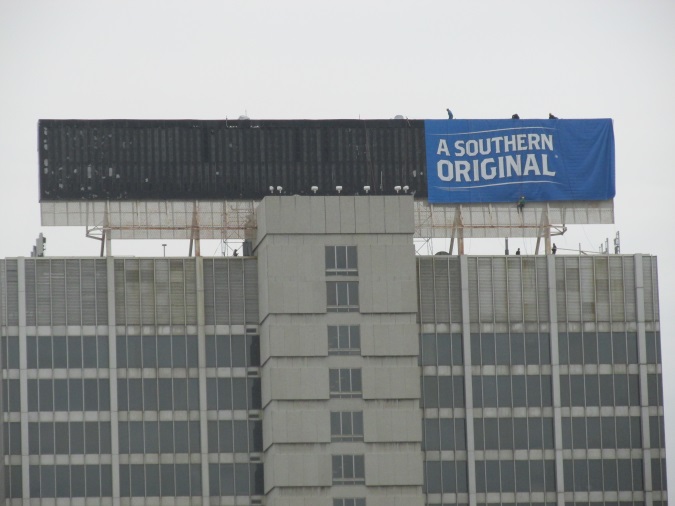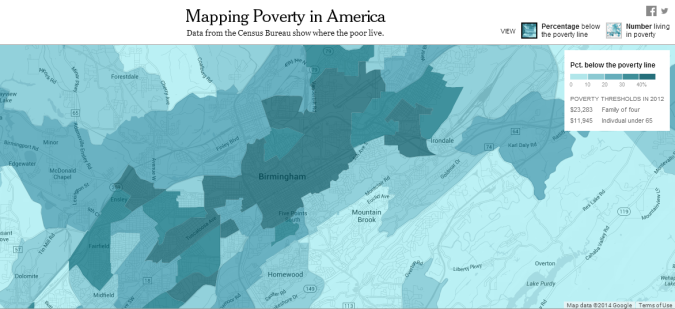 St. Patrick’s Day reminds me I’m a product of Catholic schools in New York City. The first nine years were because my parents told me so; the last four were by choice. The result was being greatly influenced by the thirst for knowledge central to the core of the Augustinian and Marist traditions. A summarizing of that thirst is the need to seek knowledge, particularly the truth. In order to accomplish this, you have to remind yourself often to look at the entire scope of a project – not just the part central to whatever fight you hold dear.
St. Patrick’s Day reminds me I’m a product of Catholic schools in New York City. The first nine years were because my parents told me so; the last four were by choice. The result was being greatly influenced by the thirst for knowledge central to the core of the Augustinian and Marist traditions. A summarizing of that thirst is the need to seek knowledge, particularly the truth. In order to accomplish this, you have to remind yourself often to look at the entire scope of a project – not just the part central to whatever fight you hold dear.
Perhaps that’s why I’ve been laughing at some of the commentary about the dislike of the Pepsi sign. Among the popular arguments presented against those speaking out about it is that there are bigger issues affecting the city of Birmingham. After all, it’s a little ridiculous to be all worked up over a sign paid for by a long-time Birmingham-based business advertising a New York-based multi-national business founded in North Carolina, right? (Granted, that’s the least of PepsiCo’s problems right now…)
Yes, here are a lot of major issues facing the general population of Birmingham. However, if you think about the original reason for the sign it is covering, its placement, and its visibility, you realize it speaks more to the pecking order of major issues affecting the region. At least, that’s why I’ve been vocal about the sign. I’ll explain:
Those finding issues with the installation of the advertisement probably wouldn’t be as vocal as they are if the skirting of city law wasn’t flaunted in their faces in the form of a party overlooking the city. While forgotten in recent years, the display board it covers was installed to brag about the potential for Birmingham as part of its centennial. It leaves many, including myself, wondering if the choruses wouldn’t have been muted ever so slightly if the money spent on this unveiling were publicly shared with one of the city’s missions or outreach programs, tackling an issue of significance directly. Well?
The sign is visible from much of the city proper, especially areas west of downtown. When poverty grips approximately 30% of our city (or more based on the screenshot of an interactive map created by The New York Times earlier this year), does it give them hope as they see a sign installed for an undisclosed amount of money advertising one of many soft drinks that lends itself to the state’s ranking among states fighting obesity (regardless if it places us in the top 5 or farther down the upper reaches of that kind of list)?

When quality affordable housing is not a reality for many and the ability to find some in an area that allows you to get to work and have access to the basics is increasingly hard for citizens, what does that sign say to them? How many homes could be renovated or built with those funds? Whether intended or not, and regardless of where the conversation is taking place – fellowship halls, barber shops, libraries, parks, living rooms, or Facebook – discussions are taking place that vocal online participants aren’t as plugged into as we may believe.
Maybe the sign serves as a more powerful mirror to the community about its priorities, placing corporate objectives above the social needs of the city? What if you’re so concerned with fighting against “the man” that you blow off people willing to help with some piece of a solution? Could a removal of the advertisement include monies being given to those organizations and initiatives working to battle the bigger issues? The need to polish a public image can lead to some interesting partnerships, but we may not find out.
Recent weeks have reminded me of just how polarized a community can become, potentially keeping people from realizing they might be working towards the same goals. The opportunity for those partnerships to be forged and acted upon become harder when antagonistic baiting of a captive audience becomes more entertaining to some instead of digging a little deeper to find out how others may tick. There are far more constructive ways to make noise and hold up that mirror than saying there’s only one way to fight a battle. The city will move forward in spite of the nitpicking. It could move a lot farther if it was more civil. We’d also do a lot better of we looked at the entire situation when thinking about how to tackle one piece. Isolating yourself from being a true part of the solution is a sad thing indeed.
Maybe it’s time to rewrite former UAB president Joseph Volker‘s famous quote? Instead of dreaming “too-little dreams,” we need to start accomplishing more and more goals. The pointing, waving, and name-calling is doing more to destroy potential progress before it even begins, though it’s being done in the name of raising awareness. Awareness is needed, but so is the need to recognize how to act like adults and agree to disagree.
Otherwise, we do a great disservice to Birmingham if we continue to isolate, name-call, and posture too childishly.
André Natta is the stationmaster of bhamterminal.com.

For some, it's about a lot more than a "sign"
03.17.2014 by André Natta · → Leave a comment
Perhaps that’s why I’ve been laughing at some of the commentary about the dislike of the Pepsi sign. Among the popular arguments presented against those speaking out about it is that there are bigger issues affecting the city of Birmingham. After all, it’s a little ridiculous to be all worked up over a sign paid for by a long-time Birmingham-based business advertising a New York-based multi-national business founded in North Carolina, right? (Granted, that’s the least of PepsiCo’s problems right now…)
Yes, here are a lot of major issues facing the general population of Birmingham. However, if you think about the original reason for the sign it is covering, its placement, and its visibility, you realize it speaks more to the pecking order of major issues affecting the region. At least, that’s why I’ve been vocal about the sign. I’ll explain:
Those finding issues with the installation of the advertisement probably wouldn’t be as vocal as they are if the skirting of city law wasn’t flaunted in their faces in the form of a party overlooking the city. While forgotten in recent years, the display board it covers was installed to brag about the potential for Birmingham as part of its centennial. It leaves many, including myself, wondering if the choruses wouldn’t have been muted ever so slightly if the money spent on this unveiling were publicly shared with one of the city’s missions or outreach programs, tackling an issue of significance directly. Well?
The sign is visible from much of the city proper, especially areas west of downtown. When poverty grips approximately 30% of our city (or more based on the screenshot of an interactive map created by The New York Times earlier this year), does it give them hope as they see a sign installed for an undisclosed amount of money advertising one of many soft drinks that lends itself to the state’s ranking among states fighting obesity (regardless if it places us in the top 5 or farther down the upper reaches of that kind of list)?
When quality affordable housing is not a reality for many and the ability to find some in an area that allows you to get to work and have access to the basics is increasingly hard for citizens, what does that sign say to them? How many homes could be renovated or built with those funds? Whether intended or not, and regardless of where the conversation is taking place – fellowship halls, barber shops, libraries, parks, living rooms, or Facebook – discussions are taking place that vocal online participants aren’t as plugged into as we may believe.
Maybe the sign serves as a more powerful mirror to the community about its priorities, placing corporate objectives above the social needs of the city? What if you’re so concerned with fighting against “the man” that you blow off people willing to help with some piece of a solution? Could a removal of the advertisement include monies being given to those organizations and initiatives working to battle the bigger issues? The need to polish a public image can lead to some interesting partnerships, but we may not find out.
Recent weeks have reminded me of just how polarized a community can become, potentially keeping people from realizing they might be working towards the same goals. The opportunity for those partnerships to be forged and acted upon become harder when antagonistic baiting of a captive audience becomes more entertaining to some instead of digging a little deeper to find out how others may tick. There are far more constructive ways to make noise and hold up that mirror than saying there’s only one way to fight a battle. The city will move forward in spite of the nitpicking. It could move a lot farther if it was more civil. We’d also do a lot better of we looked at the entire situation when thinking about how to tackle one piece. Isolating yourself from being a true part of the solution is a sad thing indeed.
Maybe it’s time to rewrite former UAB president Joseph Volker‘s famous quote? Instead of dreaming “too-little dreams,” we need to start accomplishing more and more goals. The pointing, waving, and name-calling is doing more to destroy potential progress before it even begins, though it’s being done in the name of raising awareness. Awareness is needed, but so is the need to recognize how to act like adults and agree to disagree.
Otherwise, we do a great disservice to Birmingham if we continue to isolate, name-call, and posture too childishly.
André Natta is the stationmaster of bhamterminal.com.
Filed under: Commentary